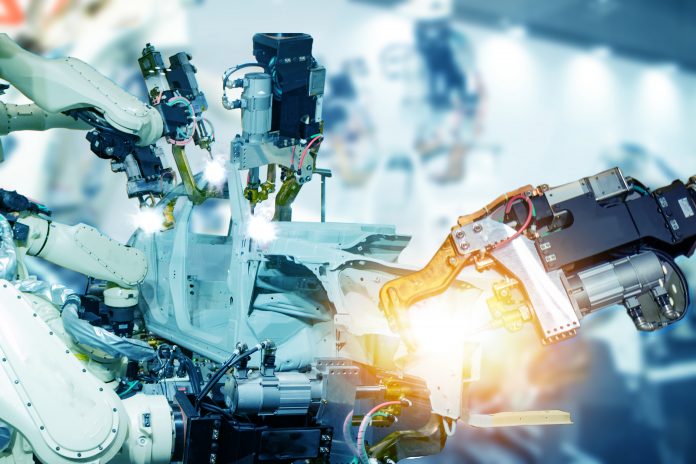Prof. Dr. Julian M. Müller from Salzburg University of Applied Sciences, walks us through how small and medium-sized enterprises can profit from the opportunities brought about by Industry 4.0
Industry 4.0 describes a concept initiated by the German government, indicating a fourth industrial revolution. Cyber-Physical Systems and the Internet of Things represent the technological foundation for Industry 4.0, which allow three forms of integration: Horizontal interconnection across the supply chain, vertical interconnection across functional departments, and end-to-end engineering – from product development to end-of-life recycling.
The concept of Industry 4.0 is geared towards gathering, transmitting, and analysing data throughout these three forms of integration, which are all required in order to unlock the full potential of Industry 4.0. Industry 4.0 must be better understood and implemented across entire supply chains and entire product lifecycles, in contrast to isolated solutions in single factories or firms.
In our research (see in further reading below), we found that the cross-company implementation of Industry 4.0 brings several challenges, which are derived from the requirements for deeper cross-company collaboration. This is especially true for small and medium-sized enterprises (SMEs), which have specific expertise and often niche-specific know-how that is of high importance for entire supply chains. Therefore, to support Industry 4.0, the integration of SMEs is vital.
SMEs in the EU
However, SMEs, throughout the European Union (EU) defined as firms with up to 250 employees, have several characteristics that make it hard for them to approach the potentials of Industry 4.0. For instance, SMEs often act as suppliers without direct end-customer contact, having limited resources and skills, low bargaining power compared to larger enterprises, lower digitisation levels, reluctance to change, and feared transparency. However, SMEs’ contribution to employment and regional economic welfare is undisputed throughout the EU.
Potentials of Industry 4.0
Aspects such as more efficient processes, a reduction of resource consumption and waste generation represent benefits promised by Industry 4.0, with examples such as early recognition of errors, self-optimising and interconnected production and logistics processes, using, for instance, condition monitoring and predictive capabilities. Increased resource and energy efficiency are the result of better load and energy balancing across the supply chain, also relating to the inclusion of renewable energy sources, as renewable energy availability and energy demand in manufacturing industries can be better aligned.
Another example includes products with a longer useful life due to improved maintenance based on predictive capabilities. Further, data flowing back from product usage can be used to optimise product development and recycling. Another aspect is that certification, monitoring and traceability can be achieved more easily through transparency across the supply chain, along with supporting employees in their decision-making and reducing potentially harmful and automatable work.
Data transparency
To approach such potentials, data transparency across the supply chain is needed. Data transparency requires SMEs to share and receive data, rising several challenges from a SME perspective. For instance, many SMEs are reluctant to make the effort required for sharing data, as there are different data standards and interfaces within SMEs, which have semi-automated and only partially digitised approaches in use. Further, high efforts for digitisation and standardisation in many SMEs are required, while some of them fear that data transparency will lead to their – often larger – customers with higher bargaining power to use this information against them, i.e., to lower prices or to substitute them with competitors. Comparably, data leaks to competitors or third parties are feared, while adequate solutions or specialists for data security frequently cannot be afforded by SMEs.
Access to data
Further, SMEs typically do not have access to the overall data generation in the supply chain and to product data in usage, but only to direct data shared with their own customers and suppliers. Therefore, SMEs can hardly benefit from product usage data, since they often act as suppliers with no direct contact to the end-customer, while data flowing back to them is infrequent so far.
Conclusion
Conclusively, many challenges derive for those SMEs that are, on the one hand, unable or reluctant to share data with their direct and indirect customers, and on the other hand, lack access to data on end-customer experience. This is a result of technical considerations, high efforts needed and fears towards data transparency.
Therefore, creating an environment in which SMEs enable and benefit from data transparency is a requirement towards Industry 4.0 for policy and practice alike. Data transparency must be increased across the supply chain, including SMEs receiving and sharing manufacturing and market data. The interplay of technical implementation and fears towards data transparency, as well as the fear that data cannot bring tangible benefits for SMEs must be better understood, to highlight possible strategies in response. Such strategies can include data storage facilities that are decentralised and secure for end-to-end supply chains, affordable solutions for SMEs to share and receive data, and supporting or rewarding SMEs directly in providing data to their partners, as their efforts are vital to develop Industry 4.0 potentials.
Further reading
Müller, J. M., Buliga, O., & Voigt, K. I. (2020). The role of absorptive capacity and innovation strategy in the design of industry 4.0 business Models – A comparison between SMEs and large enterprises. European Management Journal, 10.1016/j.emj.2020.01.002.
Müller, J. M., Buliga, O., & Voigt, K. I. (2018). Fortune favors the prepared: How SMEs approach business model innovations in Industry 4.0. Technological Forecasting and Social Change, 132, 2-17.
Müller, J. M., & Voigt, K.-I. (2018). Sustainable Industrial Value Creation in SMEs: A Comparison between Industry 4.0 and Made in China 2025. International Journal of Precision Engineering and Manufacturing-Green Technology, 5(5), 659-670.
Please note: This is a commercial profile






























